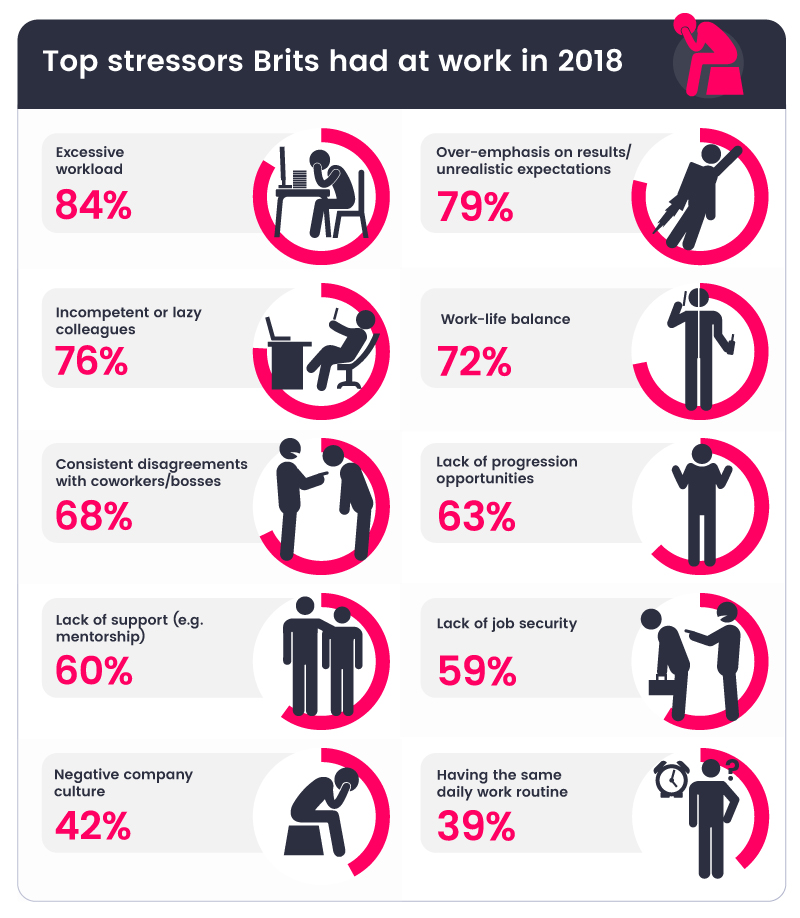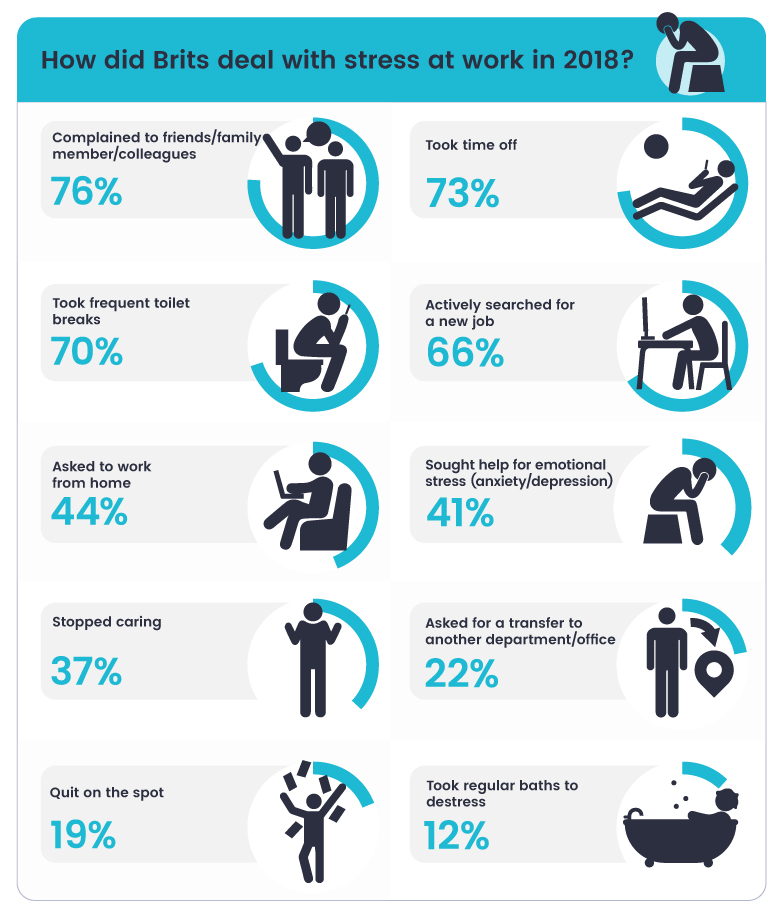Thousands of Brits have taken time off work throughout 2018 due to work-related stress, depression and anxiety
With Christmas just around the corner, the festive spirit has made Brits more relaxed, apart from a slight concern for their bank accounts, the usual issues and worries are on standby. However, recent figures from the Health and Safety Executive (HSE) show that almost 600,000 workers are suffering from work-related stress, depression or anxiety in 2018. Simultaneously, 15.4 million working days were lost due to work-related stress this year.
With this year coming to an end, the online marketing specialists at Reboot Digital Marketing Agency have decided to investigate what are the most common reasons why Brits felt stress at work this year and the ways in which they’ve decided to deal with it.
A survey asking 1,274 Brits about the most common work stressors they had in 2018 have revealed the following:
The top work stressor Brits had in 2018 was an excessive workload, with 84% saying this was the biggest cause of worry for them this year. Unrealistic expectations came second at 79%, as employees feel overwhelmed by the need to constantly impress their superiors. 76% of Brits taking part in the survey have been bothered by a co-worker’s lack of competence, while 72% struggle to find a work-life balance.
Other stressors that made the list were: lack of progression opportunities (63%), lack of job security (59%) and a negative company culture (42%).
When it comes to the ways in which Brits dealt with stress at work this year, the results show the following:
76% of people taking part in the survey have confessed that they destress by complaining to another person, whether it’s a friend, family or even a co-worker, while 70% admit to taking frequent toilet breaks to get away from their work space. Some Brits have resorted to actively searching for a new job (66%) while others have asked to work from home (44%).
Other ways Brits dealt with work-related stress in 2018 include: seeking help for emotional stress (anxiety/depression), they simply stopped caring (37%) and taking regular baths to destress (12%).













